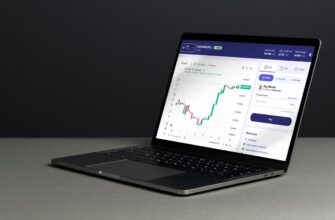## What is KYC and Why Avoid It?
KYC (Know Your Customer) is a verification process used by exchanges to collect personal data like ID scans and proof of address. While designed to prevent fraud, many users seek Bitcoin purchases without KYC for enhanced privacy, reduced identity theft risk, or avoiding centralized surveillance. This guide explores legitimate non-KYC methods, emphasizing that regulations vary by jurisdiction—always comply with local laws.
## 5 Ways to Buy Bitcoin Without KYC
**1. Peer-to-Peer (P2P) Exchanges**
Platforms like LocalCoinSwap, Bisq, or Paxful connect buyers/sellers directly. No central authority holds funds or requires ID for basic trades.
Steps:
1. Create an account (email only)
2. Browse seller offers filtering for “no KYC”
3. Select payment method (cash deposit, gift cards, etc.)
4. Escrow holds BTC until payment confirmation
5. Release Bitcoin to your wallet
**2. Bitcoin ATMs**
Select machines allow purchases under $900 without ID. Operators like CoinFlip or general Bitcoin ATM providers offer this option.
Steps:
1. Find a non-KYC ATM via CoinATMRadar
2. Insert cash
3. Scan your private wallet QR code
4. Confirm transaction
**3. Gift Card Conversions**
Trade retailer gift cards (Amazon, eBay, etc.) for BTC via platforms like Paxful:
1. Buy gift card with cash
2. Find a “gift card for BTC” seller
3. Exchange card details for Bitcoin
**4. Decentralized Exchanges (DEXs)**
Platforms like Hodl Hodl or RoboSats use multisig escrow without handling user data:
1. Download compatible wallet (e.g., Electrum)
2. Initiate trade matched by the DEX
3. Lock BTC in escrow
4. Send payment (bank transfer/crypto)
5. Seller releases BTC
**5. In-Person Cash Trades**
Meet sellers locally via forums or meetups:
1. Use LocalBitcoins or Telegram groups
2. Agree on amount/meeting point
3. Exchange cash for BTC transferred to your wallet
## Risks and Limitations
– **Scams**: Higher fraud risk in unregulated trades—use escrow services.
– **Fees**: P2P/ATM markups (5-15%) vs. traditional exchanges.
– **Legality**: Some jurisdictions prohibit non-KYC crypto purchases.
– **Anonymity Limits**: Blockchain analysis can trace transactions.
## Frequently Asked Questions (FAQs)
**Q: Is buying Bitcoin without KYC illegal?**
A: Not inherently illegal, but regulations vary. In the US, transactions under $10,000 often avoid mandatory KYC, but consult local laws.
**Q: What’s the maximum I can buy without KYC?**
A: Typically $500-$1,000 per transaction via ATMs/P2P. Limits rise with seller trust on platforms.
**Q: Are non-KYC Bitcoins traceable?**
A: Yes—all Bitcoin transactions are public. Use wallets like Wasabi or Samourai for enhanced privacy.
**Q: Can I use credit cards without KYC?**
A: Rarely. Card processors almost always require verification.
**Q: Which wallets work best for non-KYC BTC?**
A: Non-custodial wallets (e.g., Exodus, Electrum) where you control private keys.
**Q: Do decentralized exchanges require ID?**
A: True DEXs like Bisq never require ID—trades occur directly between users.
**Final Tip**: Prioritize security. Verify sellers’ reputations, use hardware wallets, and never share private keys. While non-KYC methods offer privacy, balance convenience with risk tolerance.








